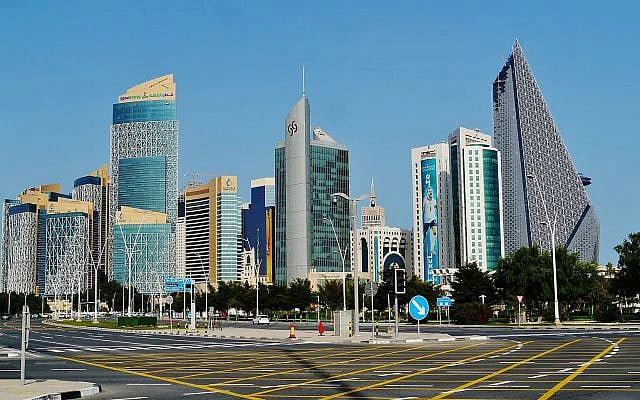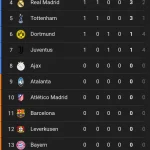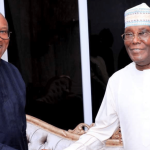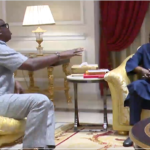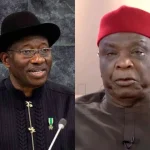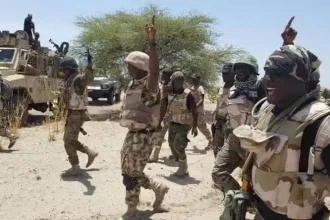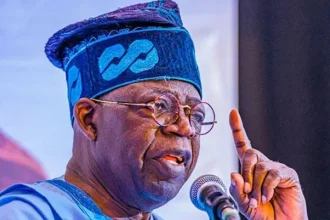Qatar has long sold itself as Middle East’s indispensable paradox: the concierge of the largest U.S. air hub in the region and the hotelier of Islamist leadership; a media magnate preaching “speaking truth to power” while bankrolling the very power it flatters; a sovereign fund that buys London icons and Paris glory while writing checks that end up underwriting militants in the UK and France.
But the Israeli strike on Hamas negotiators in Doha ripped the mask. The IDF offensive was less an escalation than a public service announcement: if you host the board of a terrorist enterprise, you are part of its balance sheet.
Start with the facts Doha prefers as décor. The United States runs its Combined Air Operations Center from Al Udeid, the theater brain of CENTCOM’s air war, planted on Qatari soil with Qatari permission. That same emirate welcomed the Taliban’s political office in 2013 and midwifed the 2020 Doha Agreement that green-lit America’s exit as Kabul collapsed on schedule. Qatar also gave Hamas an address in 2012 and a diplomatic fig leaf ever since—until several of those “political” figures were targeted last week in the Qatari capital. When Jerusalem says it will hunt Hamas “wherever they are,” it now includes a city whose skyline gleams with Western contracts and petrodollar portfolio companies.
The standard Qatari brief—repeated hourly on Al Jazeera and in official talking points—claims “mediation.” It is a lawyer’s word doing a smuggler’s job. Doha hosts, funds, launders reputations, and then sells access back to Washington and European chancelleries as if it were performing a neutral good. Al Jazeera is the messaging arm of this strategy, formally “private,” functionally patron-financed, and famous for platforming the Muslim Brotherhood line while denouncing anyone who notices. The product is leverage: when you warehouse the arsonist, you can charge a fee to point the fire brigade to his number.
Follow the money and you meet the second mask.
The Qatar Investment Authority and its satellites have been the marquee buyers in London and Paris for a decade and a half—Harrods acquired; Barclays rescued in the crisis; Paris Saint-Germain transformed into a state project with Champions League medals to match the soft-power brief. These purchases are not hobbies. They are pressure points. They buy publicists, board seats, and plausible deniability. They also buy time, which ran out the moment fragments fell on Doha pavement.
Israel’s message after the strike was not subtle: if the war is transnational, so is deterrence. The attack killed Hamas operatives in Doha; Prime Minister Benjamin Netanyahu then vowed to hit Hamas leaders “wherever they are.” The United Nations machinery condemned it; Arab and Islamic leaders staged a solidarity summit; Washington signaled disquiet but did not force a reversal, even as it rushed to stabilize a separate U.S.–Qatar defense package. Strip away the statements and you see the strategic rub: American basing does no longer entitle Qatar to a liability shield for hosting proscribed militants.
Will this call Doha’s game? It has already changed the price. An emirate that markets itself as the indispensable phone number now carries insurance risk. Every capital will ask whether facilitating Hamas meetings on Qatari soil paints a target under a U.S. air headquarters. Washington’s own doctrine—reward partners who cooperate on counterterrorism—collides with the awkward fact that Qatar’s leverage exists because it shelters the very actors America seeks to degrade. Expect more hedging: U.S.–Qatar defense ties will tighten in form to reassure both militaries, while Israeli intelligence degrades the “political bureau” fiction in practice. The net effect is to shrink the safe operating space for Hamas emissaries in Doha without breaking the basing relationship—precisely the outcome Israel wants.
Are the other Arab monarchies covertly against Qatar? History answered in 2017, when Saudi Arabia, the UAE, Bahrain, and Egypt embargoed Doha over support for Islamists, from the Muslim Brotherhood to the Taliban to Hamas. The Al-Ula thaw in 2021 papered over grievances; it did not erase them. Abu Dhabi and Riyadh compete with Doha for Washington’s favor, Western capital, and regional narrative control.
An Israeli strike on Qatari soil over Hamas will provoke public condemnations and private smirks. The subtext in Gulf chancelleries is simple: Doha’s curation of Islamist clients threatens the neighborhood’s monarchic bargain; if Israel punctures that myth at acceptable diplomatic cost, they will bank the benefit while decrying the method.
Al Jazeera will rage; QIA will reassure; envoys will shuttle. The structural dilemma remains. A state cannot be both sanctuary and stakeholder in the Western order without consequences once the terror portfolio draws kinetic interest. Doha wagered that media spin and mediation theater could indefinitely arbitrate between its militants and its markets. The IDF just marked that bet to market—and the new valuation is cruelly efficient.
Doha thought it could still be both Wall Street and Waziristan, banker to London and landlord to Hamas. Israel just proved that in the new world being shaped by President Trump and Netanyahu, you can no longer cash both checks.
About the Author
Giuseppe Levi Pezzulli (“Bepi”) is a Solicitor of the Senior Courts of England & Wales. He is a Councillor of the Great British PAC and a member of Advance UK’s College. His research interests include global governance and economic statecraft. Within this context, he undertakes studies to leverage economic and financial power for foreign policy and national security purposes, formulating defensive strategies to protect economic leadership, as well as affirmative strategies for investment and trade promotion. His analyses appear on CNBC, Rai News, Sky News, NATO Defense College Found’n, The American Banker, The American Thinker, The Critic, and Bloomberg terminals. He is the Research Editor for Longitude Magazine and the Director of Research at Italia Atlantica.

